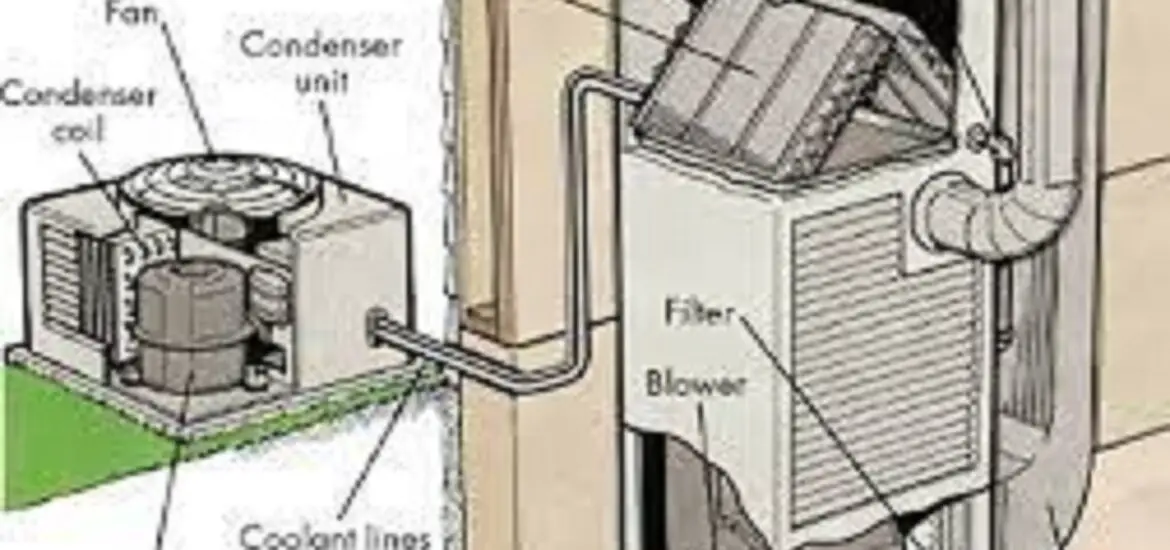Evaporator coil not getting cold? We’ve all been there, right? It’s a hot summer day, and your air conditioner just isn’t cutting it. In this article, we’ll dive into the importance of the evaporator coil in your air conditioning system, explore common reasons it might not be getting cold, and most importantly, help you troubleshoot and fix the issue. Ready? Let’s go!

Table of Contents
Understanding the Function of the Evaporator Coil
Role of the Evaporator Coil in the Cooling Process
So, what’s the big deal with the evaporator coil? Well, it plays a crucial role in the cooling process by exchanging heat between the air in your home and the refrigerant in your system. The refrigerant absorbs the heat and then changes phases from liquid to vapor, keeping you cool and comfy.
Components of the Evaporator Coil
Let’s break it down. The evaporator coil has three main components: the coil itself, the expansion valve, and the air filter. These work together to ensure proper heat exchange and keep your air conditioning system running smoothly.
Read more about evaporator coils here – – Evaporators in Refrigeration: Easy Guide to Understanding Your Fridge’s Unsung Hero
Common Causes of Evaporator Coil Not Getting Cold
There are a number of different reasons for an evaporator coil not getting cold. Here they are…
Low Refrigerant Levels
Symptoms of Low Refrigerant
How can you tell if your refrigerant levels are low? Keep an eye out for insufficient cooling, ice buildup on the coil, or hissing and bubbling sounds. These are all signs that you might have a problem.
Causes of Low Refrigerant Levels
Low refrigerant levels can be caused by leaks in the system or improper installation. In either case, it’s important to address the issue quickly to avoid further complications.
Frozen Evaporator Coil
Causes of Frozen Evaporator Coil
Ever wonder why your evaporator coil might be freezing up? Reduced airflow, a dirty air filter, or low refrigerant levels can all contribute to this pesky problem.
Signs of Frozen Evaporator Coil
Watch for visible ice on the coil or reduced cooling capacity as signs that your evaporator coil may be frozen.
Faulty Expansion Valve
Function of the Expansion Valve
The expansion valve plays a key role in regulating refrigerant flow and maintaining pressure and temperature. It’s an essential part of your air conditioning system’s performance.
Signs of a Faulty Expansion Valve
Not sure if your expansion valve is faulty? Insufficient cooling and fluctuating temperatures are telltale signs that something might be amiss.
Dirty Evaporator Coil
Causes of Dirty Evaporator Coil
Why is your evaporator coil dirty? Inadequate air filter maintenance and dust and debris buildup can both lead to a dirty coil, which can wreak havoc on your system’s efficiency.
Effects of a Dirty Evaporator Coil
A dirty evaporator coil can reduce heat exchange efficiency and even cause overheating and system damage. It’s definitely something you want to avoid!
How to Fix Evaporator Coil Not Getting Cold
Diagnosing the Issue
To diagnose the issue, start with a visual inspection of the coil, checking for leaks, and measuring refrigerant levels. This can help you identify the root cause of the problem and determine the best course of action.
Fixing Low Refrigerant Levels
If you find that your refrigerant levels are low, you’ll need to locate and repair any leaks in the system and then recharge the refrigerant. This will help get your air conditioner back to its optimal cooling performance.
Thawing and Preventing a Frozen Evaporator Coil
Got a frozen evaporator coil? Start by turning off your air conditioning system to allow it to thaw. While you’re at it, clean the air filter and ensure proper airflow to prevent future freezing issues.
Replacing or Repairing a Faulty Expansion Valve
If you’ve confirmed that your expansion valve is faulty, you’ll need to replace it to restore your air conditioner’s performance. This is a job that may require professional assistance, so don’t hesitate to call in an expert if needed.
Cleaning the Evaporator Coil
When it’s time to clean your evaporator coil, make sure to properly access the coil, use a coil cleaner, and replace the air filter. Keeping your coil clean is crucial for maintaining an efficient and functional air conditioning system.
Preventative Measures and Maintenance
Regularly Scheduled Maintenance
The importance of routine checkups cannot be overstated. Scheduling professional inspections and cleanings can help catch potential issues before they become bigger problems, ensuring your air conditioner stays in tip-top shape.
Air Filter Maintenance
Keeping your air filters clean is essential for maintaining an efficient air conditioning system. It’s recommended to replace your air filter at least every 90 days, but check it monthly to see if it needs to be changed sooner.
Monitoring Refrigerant Levels
Monitoring your refrigerant levels is crucial for maintaining proper cooling performance. Keep an eye out for signs of potential leaks and address them promptly to avoid further issues.
Conclusion
Addressing evaporator coil issues is crucial for keeping your air conditioner running smoothly and efficiently. By understanding common causes, troubleshooting problems, and staying on top of maintenance, you can ensure a comfortable and cool environment in your home. Now that you’re armed with this knowledge, you’re ready to tackle any evaporator coil issues that come your way!